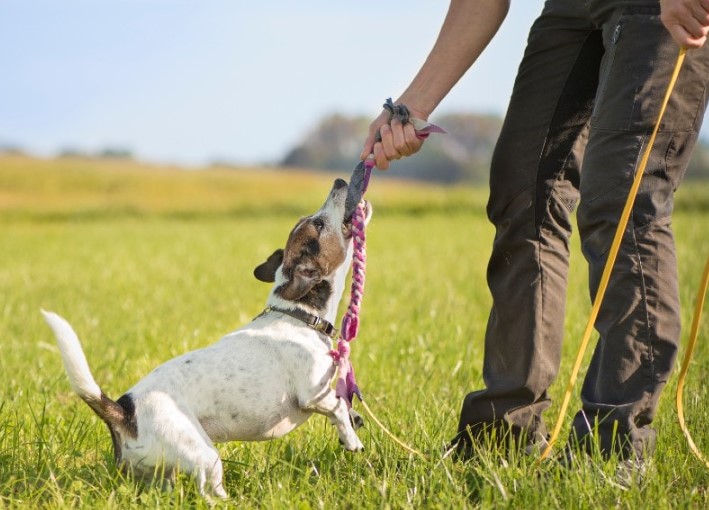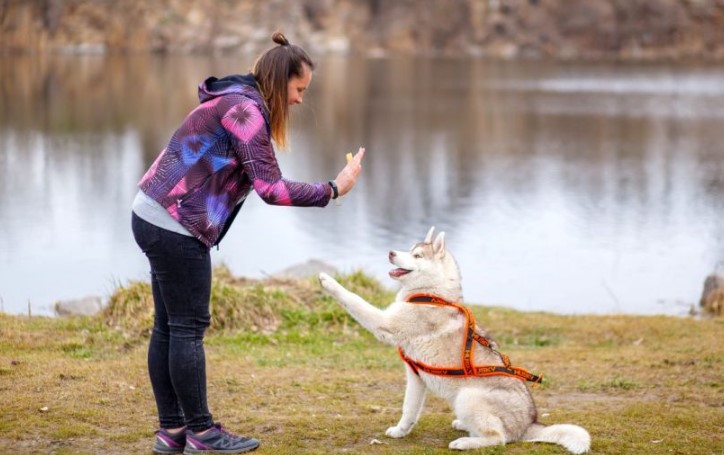
The Role of Playtime in Your Dog’s Wellbeing
Key Takeaways
- Playtime is crucial for a dog’s physical and mental health.
- Different types of play offer various health benefits.
- Interactive toys and playtime routines can strengthen the bond between dogs and their owners.
Understanding Your Dog’s Play Needs
Dogs are animated beings by nature, and playtime is the heartbeat of their day. It’s not merely an activity; it’s a necessity for their holistic growth. When well-executed, playtime is a powerful tool to engage their innate curiosity, channel their energy positively, and enhance their overall demeanor.
A PetMD survey highlights how indulging in playful activities sharpens your dog’s mental faculties and mitigates tendencies toward destructive behavior. Understanding these nuanced needs equips pet owners with the wisdom to nurture a lively and contented companion.
The Physical Benefits of Play
Playtime impacts a dog’s physical health, keeping them agile and robust. Physical activities don’t just tire out your pup; they are intricate workouts that burn excess calories and enhance cardiovascular health. Whether it’s a simple romp in the backyard or a planned day at a pet hotel Denver CO, ensuring that your dog receives ample playtime is crucial. For instance, games like fetch or tug-of-war require bursts of energy, stimulating their muscles and improving their coordination. Moreover, staying active helps to maintain an ideal weight, reducing the risk of obesity, which is a growing concern among pets. The joy these activities bring is evident when you see tails wagging furiously and your dog’s eyes sparkly.
Mental Stimulation Through Games
Dogs are intelligent creatures, and mental challenges are as important as physical exertion. Engaging with problem-solving toys, enjoying a game of hide and seek, or learning new tricks exercise a dog’s mind. These mental exercises are crucial in avoiding boredom and its associated negative behaviors. Complex games and puzzles can divert a dog’s natural preferences for chewing or digging, redirecting that energy towards constructive ends. By fostering a stimulating environment, you’re keeping their brains agile and ensuring a more peaceful home atmosphere.
Bonding Through Play
Playtime is beneficial for dogs and also a powerful bonding opportunity between dogs and their humans. The shared joy and laughter strengthen the relationship, building trust and mutual understanding. Investing time in play teaches you more about your dog’s personality, preferences, and limits. These insights can prove invaluable when addressing behavioral issues or enhancing training initiatives. During these happy, shared moments, some of the most enduring memories are forged, strengthening the loving bond between owner and pet.
Structured Versus Unstructured Play
Balanced play involves both structured and unstructured activities. Structured play, which includes obedience training or activities like agility courses, brings focus and discipline to your dog’s routine. These activities help enforce commands, enhance focus, and use energy constructively. Meanwhile, unstructured play encourages spontaneity, allowing your dog to explore freely, improve socialization, and bolster creativity. A journal article from The American Kennel Club supports that balancing these types of play fosters comprehensive growth and contributes to a more balanced and socially adept pet.
Interactive Toys and Gadgets
For those times when life gets a bit hectic, interactive toys and gadgets can become an excellent source of entertainment for your dog. Innovations such as automatic ball launchers or smart feeders keep dogs engaged and entertained, even in your absence. These toys challenge their mental understanding and can be crucial in reducing separation anxiety. Choosing suitable toys that cater to your dog’s play style—whether they prefer chewing, fetching, or solving puzzles—ensures sustained interest and engagement.
Creating a Play Routine
Regular play routine is paramount to your dog’s health and happiness. Consistency helps dogs understand what to expect from their day, reducing anxiety and promoting a sense of security. A blend of activities at various daily intervals can cater to your dog’s physical and mental needs, supporting good behavioral patterns. By integrating play into daily life, you ensure your dog expends energy positively and contributes significantly to its long-term wellbeing, molding it into a well-adjusted, happy companion.
You May Also Like

Pet Care Tips: A Comprehensive Guide to Keeping Your Pets Happy and Healthy
July 9, 2023
Animal Training: Unlocking the Secrets of Effective Training Methods
August 9, 2023

